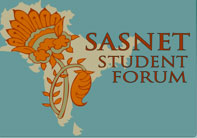SWEDISH
SOUTH ASIAN STUDIES NETWORK
Newsletter 88:
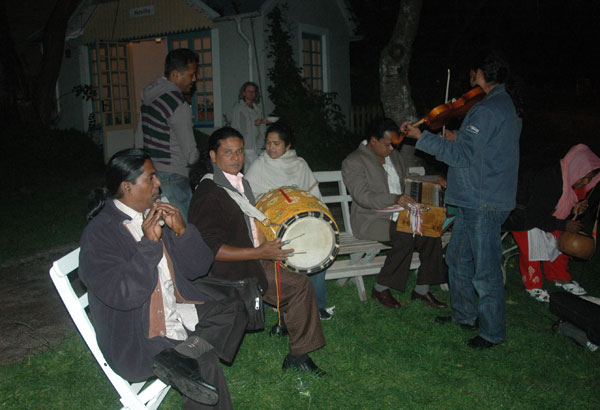 15 September 2008
15 September 2008
| Educational News |
| Politics and Business |
| South Asia related Culture |
| New and updated information |
• 19 projects awarded SASNET 2008 planning grants
 On Tuesday 26
August 2008 the SASNET Reference group (consisting of three
eminent Nordic South Asia scholars) decided to give networking/planning
grants to eight new research projects. It also decided to give financial support
to seven guest lecture programmes (for inviting a guest lecturer
from South Asia to visit more than one Swedish
university), and four South Asia related interdisciplinary research
workshops (to be held in Sweden or in South Asia). The total
amount distributed was SEK 965 000.
On Tuesday 26
August 2008 the SASNET Reference group (consisting of three
eminent Nordic South Asia scholars) decided to give networking/planning
grants to eight new research projects. It also decided to give financial support
to seven guest lecture programmes (for inviting a guest lecturer
from South Asia to visit more than one Swedish
university), and four South Asia related interdisciplinary research
workshops (to be held in Sweden or in South Asia). The total
amount distributed was SEK 965 000.
The following researchers were awarded SASNET planning grants
in order to network for new research projects:
‡ Anders Björkman, Malaria Research Unit, Dept. of Medicine, Karolinska Institutet Medical University, Stockholm: ”Molecular characterization of clinical isolates of Plasmodium falciparium in Pakistan”. SEK 45 000. More information about the project.
‡ Artur Chodorowski, Department of Signals and Systems, Chalmers University of Technology, Göteborg: ”Pattern Recognition methods for early detection of precancerous oral lesions in South Asia”. SEK 75 000. More information about the project.
‡ Mattias Larsen, PADRIGU, School of Global Studies, Göteborg University: ”Development and Demography in North-Western India: Emerging Contexts of Daughter Discrimination”. SEK 75 000. More information about the project.
‡ Abul Mandal (photo to the right), School of Life Sciences, Skövde University: ”Development of new varieties of crops for avoiding loss of harvest caused by climatic instability in Bangladesh”. SEK 45 000. More information about the project.
‡ Ebbe Nordlander, Chemical Physics, Centre for Chemistry and Chemical Engineering, Lund University: ”Modelling of hydrodesulfurization reactions and development of new molecular hydrodesulfurization catalysts”. SEK 75 000. More information about the project.
‡ Camilla Orjuela, PADRIGU, School of Global Studies, Göteborg University: ”Corruption and Conflict: Challenges for Local Governance in Sri Lanka”. SEK 75 000. More information about the project.
‡ Leslie Paul and Sadhna Alström, Dept. of Forest Mycology and Pathology, Swedish University of Agricultural Sciences (SLU), Uppsala: ”Development of a collaborative research project between Indian and Swedish researchers towards sustainable hillberry production for small farm holders in Himalayan states of India”. SEK 75 000. More information about the project.
‡ Joyanto Routh, Dept. of Geology and Geochemistry, Stockholm University: ”Biogeochemical signatures and high-resolution paleoclimatic records in spelotherms from caves in Meghalaya (India)”. SEK 60 000. More information about the project.
The following researchers were awarded SASNET planning grants
in order to organise an interdisciplinary workshop:
‡ Alia Ahmad, Dept. of Economics, Lund University: Workshop about Designing action research on the development of inland fisheries for poverty alleviation in Bangladesh. SEK 75 000. More information about the workshop.
‡ Anna Laine (photo to the right), Social Anthropology, School of Global Studies, Göteborg University: ”Workshop on The Kolam Practice – in Dialogue with Anthropology and Art Practice”. SEK 75 000. More information about the workshop.
‡ Maria Lantz, Art & Architecture, Royal University College of Fine Arts (KKH): Workshop on DHARAVI: Documenting Informalities. SEK 75 000. More information about the workshop.
‡ Mikael Schultz, PADRIGU, School of Global Studies, Göteborg University: Workshop: Sri Lanka Conference on Peace and Development Research. SEK 75 000. More information about the conference.
The following researchers were awarded SASNET Guest Lecture Programme grants:
‡ Daniel Andersson and Åke Sander, Dept. of Religious Studies, theology and classical philology, Göteborg University: Invitation of Dr. Dipak Malik, Gandhian Institute of Studies, Jamui Campus, Bihar, India. Co-invited by: Religious Studies, Högskolan Dalarna; and Dept. of Sociology, Lund University. SEK 20 000 .
‡ Neelambar Hatti, Dept. of Economic History, Lund University: Invitation of Dr. T V Sekher, Associate Professor, Department of Population Policies and Programs, International Institute for Population Sciences, Mumbai, India. Co-invited by: Nordic Centre in India (NCI) to deliver lectures at Umeå University, Stockholm University and Göteborg University. SEK 20 000.
‡ Jan Johansson, Social Anthropology, School of Global Studies, Göteborg University: Invitation of Dr. Mahbub Alam, Assistant Professor, School of Liberal Arts and Science, Independent University of Bangladesh (IUB). Co-invited by: Uppsala Centre for Sustainable Development (CSD). SEK 20 000.
‡ Diane Pecorari, School for Education, Culture and Communication, Mälardalens högskola: Invitation of Dr. Ashis Sengupta, University of North Bengal, India. Co-invited by: Dept. of Humanities, Växjö University; and School of Arts and Languages, Högskolan Dalarna . SEK 20 000.
‡ Joyanto Routh, Dept. of Geology and Geochemistry, Stockholm University: Invitation of Dr. S P Sinha Ray, Centre for Groundwater Studies, Kolkata, India. Co-invited by: Geological Survey of Sweden (SGU), Stockholm; Uppsala University (Hydrology Section); and Division of Land and Water Resources Engineering, Royal Institute of Technology (KTH), Stockholm. SEK 20 000.
‡ Ferdinando Sardella, Dept. of Religious Studies, theology and classical philology, Göteborg University: Invitation of Dr. Ruby Sain (photo to the right), Dept. of Sociology, Jadavpur University, Kolkata, India. Co-invited by Vårdal Institute, Lund University. SEK 20 000 .
‡ Ashok Swain, Dept. of Peace and Conflict Research, Uppsala University: Invitation of K V Raju, Professor and Head, Centre for Ecological Economics and Natural Resources, Institute for Social and Economic Change, Bangalore, India. Co-invited by: Dept. of Archaeology, Conservation and History, University of Oslo. SEK 20 000.
• 109 SASNET planning grants distributed to 20 Swedish universities
Since SASNET was established in 2001, a total number of 109 planning grants have been distributed to Swedish researchers working on South Asia related projects within all fields – from technology and natural sciences to humanities, social sciences and educational sciences. The researchers who have benefited from the grants belong to 20 different Swedish universities and university colleges. Out of the 109 grants awarded so far, 67 refer to networking grants to plan for new research projects/programmes; 20 to grants in order to develop new educational projects/programmes; 8 to organise interdisciplinary workshops; and 14 to the guest lecture programme.
In the evaluation of SASNET that was carried out in 2005 (go for the evaluation report), it was shown that 70 p.c. of the projects that had been given SASNET planning grants till 2004 had later been given substantial funding from other sources, such as Sida/SAREC, Swedish Research Council, Bank of Sweden Tercentennary Fund, and the European Commission. No similar evaluation has been carried out since, but it is our firm conviction that SASNET’s planning grants continue to play an important role setting new South Asia related projects/programmes in motion. Go for the complete list of SASNET planning grants distributed 2001–2008.
• Students conference on South Asian Studies to be organised 2009
The SASNET board met
in Lund on Tuesday 26 August 2008. Besides approving the reference group’s decisions about the 2008 SASNET planning grants, the board also decided that SASNET should organise a conference on South Asian Studies for Swedish Masters students, PhD candidates and postdocs, to be held in the summer 2009. A working group was constituted that includes PhD candidate Ferdinando Sardella from Göteborg University, PhD candidate Per Drougge from Stockholm University, and Dr. Kristina Myrvold from Lund University. Dr. Neil Webster, DIIS, Copenhagen, and and Dr. Per Hilding, Stockholm University, will act as senior advisors to the group.
The board also decided that SASNET should earmark money in the budget for a technical development of the SASNET webpages already during the autumn 2008.
Finally, a three-year mandate period (with a possibility of a one-year extension) was introduced for SASNET’s South Asian reference group. Current members will have their mandate period defined as begun on January 1, 2007.
The full minutes from the board will soon appear on this page.
• SASNET Seminars during the Fall 2008 – see the full list (as a pdf-file), http://www.sasnet.lu.se/fall2008.pdf
– Radhika Desai lectures on Caste, Class and Hindu Nationalism in India
Prof. Radhika Desai, Dept of Political Studies, University of Manitoba, Winnipeg, Canada, will hold a SASNET lecture on ”The Dynamics of Caste, Class and Hindu Nationalism in India” in Lund on Friday 19 September 2008, 13.15–15.00. The seminar is organised in collaboration with the Dept. of Political Science, Lund University. Prof. Desai will discuss the fact that the politics of Hindutva and those of caste are generally assumed to be opposed in India. In her paper, she contests this view on the basis of an original account of caste and its modern dynamics and their interaction with class, especially in the context of liberalizing economic policy since the late 1960s. On the basis of these, the paper goes on to provide a novel interpretation of the political evolution of India in recent decades. In this account, the rise of Hindutva is the result of the rise of the middle castes and their political assertion. The different form it takes in different states, and the variety of different relationships between this middle caste political assertion and Hindutva, are also outlined. The main reason for Radhika Desai coming to Sweden is to participate in the 2008 European Social Forum, to be held in Malmö 17-21 September. Venue for the Lund lecture: Main conference room, Dept. of Political Science, Paradisgatan 5, Lund. More information.
From left to right: Allan Widman, Stig Toft Madsen and Bengt Kristiansson. – Seminar/panel discussion on Afghanistan
A seminar/panel discussion on Afghanistan will be held in Lund on Wednesday 24 September 2008, 19.00–21.00. The seminar is titled ”Upptrappning Afghanistan. Vilken roll spelar de svenska soldaterna?” (Escalation in Afghanistan. Which role do the Swedish soldiers play?) and will be held in Swedish language. It is jointly organised by SASNET, the Association of Foreign Affairs at Lund University (UPF), the Swedish Committe for Afghanistan (SCA) in Lund, and the Centre for Middle Eastern Studies (MES). The participants are Mr. Bengt Kristiansson, former general secretary for SCA Sweden; Dr. Stig Toft Madsen, senior researcher at the Nordic Institute of Asian Studies (NIAS) in Copenhagen; and Mr. Allan Widman, MP representing Folkpartiet, specialised on defence policy issues. Dr. Catarina Kinnvall, Dept. of Political Science, Lund University, will be the moderator for the discussion. Venue: Auditorium (Hörsalen) at Lund University’s Centre for Languages and Literature (SOL-Centrum), Helgonabacken 14, Lund. More information.– Durre S. Ahmed lectures on Human Rights and Women’s Activism in Pakistan
Dr. Durre S. Ahmed, Head of Communication & Cultural Studies, National College of Arts, Lahore, Pakistan, will give a seminar in Lund, titled ”Human Rights and Women’s Activism in Contemporary Pakistan” on Tuesday 7 October 2008. The seminar will be jointly organised by SASNET, the Centre for Middle Eastern Studies (CME), and Lund University’s Human Rights programme (based at the Centre for Theology and Religious Studies). Dr. Ahmed has a doctorate in Communications from Columbia University in New York, but is also a practicing psychotherapist. From her South Asian vantage point she delivers a civilisatory critique of modernisms and the Cartesian derived ethos of ‘The West’. Being also a protagonist of dialogue between adherents of the different world religions, Dr Ahmed currently includes in her analysis also different forms of Islam, criticizing “hegemonic notions of masculinity” found within Islam. More information about the seminar will follow.– David Ludden participates in SASNET/UPF seminar on Nepal
A joint SASNET/UPF (Association of Foreign Affairs at Lund University) seminar on the political development in Nepal will be held on Thursday 23 October 2008, 19.30–21.00. David Ludden (photo to the right), Professor of Political Economy and Globalization in the Department of History at New York University, USA will be the main speaker with a presentation titled ”Where is the revolution? Towards a Post-National Politics of Social Justice”. Prof. Ludden received his PhD from the University of Pennsylvania in 1978 and was Professor of History there from 1999-2008. His research concentrates on South Asia and on histories of development in very long-term perspective, focusing on economic development, agrarian conditions, health environments, empire, inequality, and social conflict. In August 2008, he was invited by the Social Science Baha to hold the 2008 Mahesh Chandra Regmi Lecture in Kathmandu. Other participants to the Lund seminar will be Dr. Katak Malla from the Dept. of Law, Stockholm University; and the HE Ambassador of Nepal to Denmark (with a side accreditation to Sweden), Mr. Vijaykant Lal Karna. Venue for the seminar: Auditorium (Hörsalen) at Lund University’s Centre for Languages and Literature (SOL-Centrum), Helgonabacken 14, Lund. More information will follow.
– Rana P.B. Singh lectures on Indian village: tradition, modernity and change
Prof. Rana P.B. Singh will give a SASNET lecture on ”Indian village: tradition, modernity and change” in Lund on Tuesday 28 October 2008, 14.15–16.00. The seminar is organised in collaboration with the Dept. of History and Anthropology of Religions, Lund University. Prof. Rana P.B. Singh, a cultural geographer at Banaras Hindu University, India has long been associated to SASNET, and also to the Indo-Swedis Programme of Karlstad University. He has now been invited as a visiting faculty to the Dept. of Religious Studies and Theology at Göteborg University for the period 13–31 October 2008. During this stay, he has also been invited to give lectures at the universities in Karlstad, Falun, Lund and Copenhagen. Venue for the Lund seminar: Room 438, Centre for Theology and Religious Studies (CTR), Allhelgona Kyrkogata 8, Lund. Read a summary of the lecture.
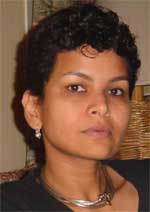 |
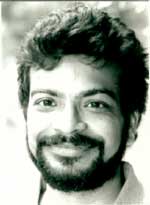 |
| The keynote speakers: Dr. Amita Bavaskar and Prof. Arun Agrawal. | |
• Report from the SASNET funded Uppsala conference
SASNET was the main funder for the international research conference on “Nature, Knowledge, Power” that was held in Uppsala 15-17 August 2008. The conference, hosted by the Department of Urban and Rural Development at the Swedish University of Agricultural Sciences (SLU), brought together researchers from different academic fields, concerned with questions of environment and society under present and historical conditions. About forty researchers and research students equally from South Asian and European universities participated in the conference and 25 full research papers were presented papers within five panels: “Energy: renewable and sustainable?”, “Competing rights, codifying law”, “Community rights under neoliberal rule”, “Who needs conservation? Nature, people, survival”, and “Ideologies of environmental change: from imperial modernization to postcolonial social equality?” The keynote speakers were Dr. Amita Baviskar from the Institute of Economic Growth at Delhi University, India and Prof. Arun Agrawal, University of Michigan.
At the conference, an inter-disciplinary network of researchers focusing on South Asian environmental issues began to emerge. SASNET will work to find ways to let this network materialize within its own activities. More information about the Uppsala conference.
• More information about SASNET and its
activities
See SASNET’s page, http://www.sasnet.lu.se/sasnet.html
• South Asian University will be set up on the lines of American Ivy League universities
 The idea of a multi-campus South Asia University (SAU) with its epicentre in India (Delhi) was mooted by the Indian Prime Minister Dr. Manmohan Singh during the 13th South Asian Association for Regional Cooperation (SAARC) summit held at Dhaka in November 2005. The idea was accepted in principle and Prof. Gauhar Rizvi, from Bangladesh, (Professor at Harvard) was assigned the job of developing the draft of the university. The draft was approved and the Government of India have allotted 100 acres land (beside the Indira Gandhi National Open University, in Maidan Garhi, New Delhi) for establishing the campus of SAU. The foundation was laid by Indian External Affairs Minister Pranab Mukherjee on 26 May 2008.
The South Asian University will be set up on the lines of American Ivy League universities, and also induct students and recruit faculty from across the globe. The governance structure of SAU, with link campuses in Pakistan, Sri Lanka, Maldives, Bangladesh, Nepal, Bhutan and Afghanistan, will be laid down by February 2009. Prof. Rizvi, who was entrusted with the task of preparing the university's concept note, has advised a middle path between government-funded and private education. The role of the SAARC nation governments will be confined to providing annual subsidies and grants, the concept note has recommended. More information.
The idea of a multi-campus South Asia University (SAU) with its epicentre in India (Delhi) was mooted by the Indian Prime Minister Dr. Manmohan Singh during the 13th South Asian Association for Regional Cooperation (SAARC) summit held at Dhaka in November 2005. The idea was accepted in principle and Prof. Gauhar Rizvi, from Bangladesh, (Professor at Harvard) was assigned the job of developing the draft of the university. The draft was approved and the Government of India have allotted 100 acres land (beside the Indira Gandhi National Open University, in Maidan Garhi, New Delhi) for establishing the campus of SAU. The foundation was laid by Indian External Affairs Minister Pranab Mukherjee on 26 May 2008.
The South Asian University will be set up on the lines of American Ivy League universities, and also induct students and recruit faculty from across the globe. The governance structure of SAU, with link campuses in Pakistan, Sri Lanka, Maldives, Bangladesh, Nepal, Bhutan and Afghanistan, will be laid down by February 2009. Prof. Rizvi, who was entrusted with the task of preparing the university's concept note, has advised a middle path between government-funded and private education. The role of the SAARC nation governments will be confined to providing annual subsidies and grants, the concept note has recommended. More information.
• Satellite workshop on Indo-Swedish Collaborations in Systems Biology
Chalmers Biocenter at Chalmers University of Technology in Göteborg organised a satellite workshop on ”Indo-Swedish Collaborations in Systems Biology” 27–28 August 2008. The workshop involved PhD students and young researchers at Chalmers and a corresponding group of visiting PhD students and young researchers from three premier research institutions in India, the National Center of Biological Sciences in Bangalore, the Indian Institute of Technology (IIT) Mumbai and the Indian Institute of Science (IISc) in Bangalore. The program committee included Catharina Hiort, Biocenter,
Devdatt Dubhashi from the Dept. of Computer Science and Engineering, and Olle Nerman from the Division of Mathematical Statistics, all at Chalmers. The workshop was supported by Vinnova's India initiative and the Royal Swedish Academy of Sciences. More information.
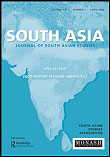 • Journal of South Asian Studies faces financial difficulty
• Journal of South Asian Studies faces financial difficulty
One of the most important refereed journals publishing work on South Asia from
the humanities and social sciences is South Asia: Journal of South Asian Studies, published by Routledge under the authority of the
South Asian Studies Association of Australia. The journal is currently in financial difficulty. This can be mitigated by more
people subscribing. It is vital for the future of research on South Asia that a quality
journal like this thrive. Many established scholars in the field got a boost to their careers by being published in SOUTH ASIA. With the fierce pressure for publication which exists, scholarship on the region needs this outlet for the work of young – as well as older – researchers today. More information on how to subscribe and for more information about the journal.
• Doctoral dissertation about democratic planning in Kolkata
Antarin Chakrabarty, Dept. of Urban Design and Planning, Norwegian University of Science and Technology (NTNU), Trondheim, Norway defended his doctoral dissertation titled ”Communicative Planning and Democratic Decentralisation in India – Case of Kolkata City” on Friday 22 August 2008. The thesis entails a constructive critique of communicative planning theory from a historical materialist perspective. The experience of Kolkata shows that a more communicative and democratic planning structure can evolve out of a process that originated with completely opposite strategies of extra-parliamentary politics and open class-confrontation. The opponents were Prof. Tore Sager,
Dept. of Civil and Transport Engineering,
NTNU; Prof. Arild Engelsen Ruud,
Dept. of Culture Studies and Oriental Languages,
University of Oslo; and Dr. Maria Nyström, Design for Sustainable Development,
Chalmers University of Technology, Göteborg.
• Report from the 2008 World Water Week in Stockholm
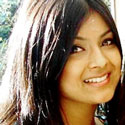 The 2008 World Water Week was (as reported in the previous newsletter) held in Stockholm. 17–23 August 2008. Bangladeshi Julie Chowdhury, born and raised in Sweden and currently working for the Swedish Committee for Afghanistan (SCA), has made an interesting report from the 2008 World Water Week. Ms. Chowdhury, holding a joint honors bachelor’s degree in Politics and International Studies and Development Studies, is currently pursuing her Masters in Gender Studies. Read Julie Chowdhury’s report titled ”The Harsh Economics of the Global Water Crisis: ‘water is the oil of this century’”.
The 2008 World Water Week was (as reported in the previous newsletter) held in Stockholm. 17–23 August 2008. Bangladeshi Julie Chowdhury, born and raised in Sweden and currently working for the Swedish Committee for Afghanistan (SCA), has made an interesting report from the 2008 World Water Week. Ms. Chowdhury, holding a joint honors bachelor’s degree in Politics and International Studies and Development Studies, is currently pursuing her Masters in Gender Studies. Read Julie Chowdhury’s report titled ”The Harsh Economics of the Global Water Crisis: ‘water is the oil of this century’”.
• Report from the Informal Cities symposium in Nacka
An international symposium and an exhibition on urban growth titled ”Informal Cities – The Stockholm
Urban Think Tank” was organised in Nacka/Stockholm 6–8 September 2008. It was a collaboration project between the Royal University College of Fine Arts, SHACK/Slum Dwellers International and the Swedish International Development Agency’s (Sida) Division for Urban Development. Sixteen artists, filmmakers and architects organized the symposium and parallel exhibition as part of the post-graduate program Art & Architecture at the Royal University College of Fine Arts (KKH) in Stockholm. Informal Cities – The Stockholm
Urban Think Tank was intended to be a meeting place where representatives of grass-root organizations from seven informal cities shared their experiences together with renowned scholars and activists such as Saskia Sassen, David Satterswaithe, Barbara Southworth, Sheela Patel and Jockin Arputham. More information.
Ms. Maria Tonini from SASNET also participated in the three-day seminar. Read her report.
• CSH invites applications for a researcher in International Relations
The Centre de Sciences Humaines (CSH), New Delhi invites applications for a researcher in International Relations or Urban Dynamics. The Centre de Sciences Humaines(CSH) is part of the network of 27 research centres of the French Ministry of Foreign Affairs. The Centre's activities are primarily oriented towards the study of issues concerning the contemporary dynamics of development in India, in its regional and international context. This post will commence in February 2009 for 3 years and can be extended by 1 year. The researcher will, under the supervision of the Director, be responsible for coordinating the activities of the division “International Relations and Regional Processes in South Asia” or of “Urban Dynamics”, at CSH, including the scientific and administrative follow-up of the projects undertaken by the researchers and the supervision of doctoral students. He/she will also contribute to the growth of the institutional network of the CSH, further enhancing the exchanges with the Indian academic milieu and developing projects in collaboration with Indo-European and international teams. The post is open to young French researchers holding a doctorate in International Relations, Political Science, Sociology, International Law, Economics, Geography, Demography or Urban Studies, to the members of institutions of higher education and research in France, as well as to candidates of the European Union holding an equivalent degree.
The candidate must be a specialist in his/her discipline having a good knowledge of South Asia, capable of integrating into a multicultural and multidisciplinary research team, and of coordination and scientific management. The candidate should be fluent in French as well as written and spoken English. An Indian language will be an added advantage. Deadline for applications is 20 October 2008. More information (as a Word-file).
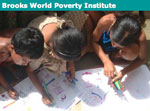 • BWPI invites applications for two research fellowship positions
• BWPI invites applications for two research fellowship positions
The Brooks World Poverty Institute (BWPI), University of Manchester, invites applications for two research fellowship positions. The first position is a Research Fellowship on Climate Change and Poverty in Urban Bangladesh, where the research fellow will contribute to building a
network to share knowledge between Bangladesh and the developed world
about how cities can adapt to cope with the impact of climate change
with special emphasis
on protecting the poor.
The second position is a so-called Bruntwood Initiative for Sustainable Cities (BISC) Research Fellowship on Climate Change and Cities, where the research fellow will contribute to
building a network to share knowledge between Manchester and other
Cities in the BISC network about how cities can adapt to cope with
the impact of climate change.
For both posts preference will be given to candidates with an
academic or professional background / expertise in environmental urban
planning but candidates with a background in other social sciences will also
be considered. The fellowships will be tenable for up to three years. Closing date for applications is Friday 19 September 2008. More information.
• University of Erfurt announces professorship in History of Religion in East Asia
The Max Weber Center for Advanced Cultural and Social Studies of the University of Erfurt, Germany announces an opening for a temporary position for six years as Full Professor (W2) for History of Religion in East Asia (Japan, China, Korea) or India (code number: 26/2008) beginning October 2008 at the earliest. The position is part of an interdisciplinary research project “Religious individualization in historical perspective”; the holder will closely cooperate with scholars of Ancient, Early Modern and Modern History of Religion in Europe, philosophers, and sociologists. The six-year-contract might be considerably prolonged. Candidates from a wide variety of disciplinary expertise and period specializations in the field of East Asian and Indian studies will be considered, with a primary focus on religion. Applicants should possess a high level of proficiency in relevant languages and have a reading knowledge of German (teaching might be in English). The successful candidate will be part of the nucleus of the research group within the Institute for Advanced Studies, supervise doctoral dissertations, and participate actively in programs in other faculties. Closing date for applications is 15 September 2008. More information.
• Berlin Graduate School Muslim Cultures and Societies invites PhD students
The Berlin Graduate School Muslim Cultures and Societies,
funded by the Excellence Initiative of the German Federal and State Governments,
will admit fifteen PhD students to its doctoral program to begin October 1, 2009. Ten of
these candidates will receive a Graduate School grant, the other candidates will be
supported in their quest for funding.
The Graduate School investigates the plurality, changeability, and global connectedness
of Muslim cultures and societies. It invites applications from candidates whose
dissertation project fits one of the Graduate School’s Research Areas. Successful
applicants will have a master’s degree in one of the disciplines represented at the
Graduate School, with a ranking, where applicable, of above average. The language of
communication is English. Admission is for one year, and, contingent upon a positive
evaluation after the first year of study, will be extended for a total of three years. More information.
• Doctoral Research Fellowship in the Kanchipuram Research Project
A Doctoral Research Fellowship within the project ”The Kanchipuram Research Project” is available at the Department of Culture Studies and Oriental Languages (IKOS), University of Oslo. Information about the project can be found on its website: http://www.kanchi-project.sai.uni-heidelberg.de/. The successful fellowship candidate will investigate aspects related to temple festivals and rites of initiation in Kanchipuram (South India), combining textual studies and anthropological approaches. The research questions can be historical, contemporary and/or comparative. He/she is expected to affiliate with the existing research milieu or network and to contribute to the further development of this. The position is available for a period of three years and is affiliated with IKOS. A Norwegian 5 year Master degree, or equivalent, in an Indian or South Asian studies program that includes language training in Sanskrit and/or Tamil is required. The successful candidate is expected to start the doctoral research fellowship within the first quarter of 2009.
• WHO Report on Social Determinants of Health
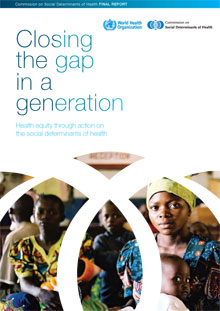 On 28 August 2008, the Commission on Social Determinants of Health within the the World Health Organisation (WHO) published a report titled ”Closing the Gap in a Generation: Health Equity through Action on the Social Determinants of Health”. The report involved over three years of groundbreaking worldwide collaboration between the WHO, national policy makers and advisors, researchers, and members of civil society. Nine knowledge networks from across the world have collected and reviewed the evidence to improve population health and health equity within and between countries. In the report, the commissioners write that ”the toxic combination of bad policies, economics, and politics is, in large measure responsible for the fact that a majority of people in the world do not enjoy the good health that is biologically possible. Social injustice is killing people on a grand scale.” Much of the work to redress health inequities is also said to lie beyond the health sector. According to the Commission's report, ”Water-borne diseases are not caused by a lack of antibiotics but by dirty water, and by the political, social, and economic forces that fail to make clean water available to all; heart disease is caused not by a lack of coronary care units but by lives people lead, which are shaped by the environments in which they live; obesity is not caused by moral failure on the part of individuals but by the excess availability of high-fat and high-sugar foods.” Consequently the report recommends that the health sector – globally and nationally – needs to focus attention on addressing the root causes of inequities in health.
On 28 August 2008, the Commission on Social Determinants of Health within the the World Health Organisation (WHO) published a report titled ”Closing the Gap in a Generation: Health Equity through Action on the Social Determinants of Health”. The report involved over three years of groundbreaking worldwide collaboration between the WHO, national policy makers and advisors, researchers, and members of civil society. Nine knowledge networks from across the world have collected and reviewed the evidence to improve population health and health equity within and between countries. In the report, the commissioners write that ”the toxic combination of bad policies, economics, and politics is, in large measure responsible for the fact that a majority of people in the world do not enjoy the good health that is biologically possible. Social injustice is killing people on a grand scale.” Much of the work to redress health inequities is also said to lie beyond the health sector. According to the Commission's report, ”Water-borne diseases are not caused by a lack of antibiotics but by dirty water, and by the political, social, and economic forces that fail to make clean water available to all; heart disease is caused not by a lack of coronary care units but by lives people lead, which are shaped by the environments in which they live; obesity is not caused by moral failure on the part of individuals but by the excess availability of high-fat and high-sugar foods.” Consequently the report recommends that the health sector – globally and nationally – needs to focus attention on addressing the root causes of inequities in health.
Two of the members of the commission are Mirai Chatterjee, Coordinator of Social Security for India’s Self-Employed Women’s Association, a trade union of over 900 000 self-employed women and recently appointed to the National Advisory Council and the National Commission for the Unorganised Sector in India; and Amartya Sen, Lamont University Professor and Professor of Economics and Philosophy at Harvard University, who was awarded the Nobel Prize in Economics in 1998. Denny Vågerö, Professor of Medical Sociology, Director of CHESS (Centre for Health Equity Studies) , Karolinska Institutet, Stockholm has been the Swedish representative in the commission. Full information about the report.
• Researcher appeals for flood relief assistance
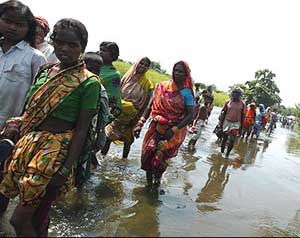 An urgent appeal for relief assistance to the flood affected people in eastern India has been posted to SASNET by Ms. Amrita Shilpi, PhD candidate and Research Scholar at the Centre for the Study of Law and Governance,
Jawaharlal Nehru University (JNU) in
New Delhi. Besides carrying out research projects and doing fieldwork in different places of India, Amrita Shilpi is also involved in the Manjushree Mental Health Care and Cure Society, an NGO working in the field of mental heath care in different parts of the states of Bihar and Uttar Pradesh, severely affected by the recent flooding. More information about the organisation.
An urgent appeal for relief assistance to the flood affected people in eastern India has been posted to SASNET by Ms. Amrita Shilpi, PhD candidate and Research Scholar at the Centre for the Study of Law and Governance,
Jawaharlal Nehru University (JNU) in
New Delhi. Besides carrying out research projects and doing fieldwork in different places of India, Amrita Shilpi is also involved in the Manjushree Mental Health Care and Cure Society, an NGO working in the field of mental heath care in different parts of the states of Bihar and Uttar Pradesh, severely affected by the recent flooding. More information about the organisation.
In the wake of the recent floods in Bihar, Manjushree now plans to provide counselling to the flood affected people. This project would need large scale participation from the clinical psychologists as soon as possible.
An interested agency that could provide financial assistance to the project to be undertaken is also needed. Ms. Shilpi says that any suggestions regarding the project are most welcome. Kindly contact her through e-mail, a.shilpi@rediffmail.com.
• Working papers available from Chatham House in London
 The Asia Research Programme at the Royal Institute of International Affairs/Chatham House in London presents its Reports, based on in-depth research conducted by experts based at or attached to Chatham House; and its Briefing Papers, shorter, policy relevant papers written by experts in their field, online. Chatham House also publishes working papers, conference reports and proceedings, summary reports of meetings and seminars, transcripts and other relevant material related to Asian studies (includng South Asia). Recent Chatham House Reports include ”India and its Neighbours: Do Economic Interests Have the Potential to Build Peace?” by Charu Lata Hogg (November 2007); ”Child Recruitment in South Asian Conflicts: A comparative Analysis of Sri Lanka, Nepal and Bangladesh”, also by
Charu Lata Hogg (November 2006); and ”Contemporary Indian Views of Europe” by
Karine Lisbonne-de Vergeron (September 2006). Full information about the Asia Programme Reports with links to full papers.
The Asia Research Programme at the Royal Institute of International Affairs/Chatham House in London presents its Reports, based on in-depth research conducted by experts based at or attached to Chatham House; and its Briefing Papers, shorter, policy relevant papers written by experts in their field, online. Chatham House also publishes working papers, conference reports and proceedings, summary reports of meetings and seminars, transcripts and other relevant material related to Asian studies (includng South Asia). Recent Chatham House Reports include ”India and its Neighbours: Do Economic Interests Have the Potential to Build Peace?” by Charu Lata Hogg (November 2007); ”Child Recruitment in South Asian Conflicts: A comparative Analysis of Sri Lanka, Nepal and Bangladesh”, also by
Charu Lata Hogg (November 2006); and ”Contemporary Indian Views of Europe” by
Karine Lisbonne-de Vergeron (September 2006). Full information about the Asia Programme Reports with links to full papers.
• More information about South Asia related
research at Swedish and Nordic universities
See SASNET’s page, http://www.sasnet.lu.se/research.html
Go for the
|
In December 2008, the Nordic Centre in India consortium organises a course on new approaches in the study of environmental issues in India. The course, ”Approaching the Environment in India – New Theories and Methods in the Study of the Nature-Society Interface” will be held in Bangalore, Karnataka 30 November–28 December 2008. It organised in collaboration with the Centre for Ecological Economics and Natural Resources at the Institute for Social and Economic Change (ISEC), in Bangalore. The course is open for graduate students from the Nordic countries. It is a multi-disciplinary course that seeks to introduce students to recent theories and methods in the study of contemporary environmental issues in India. More information.
• More information about South Asia related
education at Swedish and Nordic universities
See SASNET’s page, http://www.sasnet.lu.se/education.html
 |
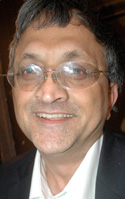 |
| Gayatri Spivak and Ramachandra Guha. | |
• Copenhagen conference on Asia in the 21st Century
A one-day conference titled 'Asia in the 21st Century – New perspectives' is held at Copenhagen University on Tuesday 16 September 2008, 13.30–17.30. It is a joint conference to celebrate the launch of Copenhagen University's new Asia focus, the so-called Asian Dynamics Initiative (ADI – more information), and the 40th anniversary of the Nordic Institute of Asian Studies (NIAS). Four leading international scholars on Asia will deliver the keynote speeches addressing a range of topics that mark Asia in the 21st century. They include Professor Gayatri C. Spivak, Columbia University, USA, who will talk about ”The Subject of an Asian Culture”; and Dr. Ramachandra Guha, Bangalore, India (but currently Arne Naess Professor at the University of Oslo, Norway) who will talk about ”Will India Become a Superpower?” Go for the 'Asia in the 21st Century – New Perspective' conference.
• international conference on Ecology and Power in Lund
An international conference on ”Ecology and Power. Critical perspectives on the discourse on sustainability and resilience” will be held at Lund University 17–19 September 2008. It is hosted by Lund University’s Human Ecology Division, and funded by the Bank of Sweden Tercentenary Foundation. In a session focusing on ”Critical interventions in political ecology”, the keynote lectures are given by Nancy Peluso from University of California, and Michael Sheridan from Middlebury College, Vermont, USA. Dr. Pernille Gooch from the Human Ecology Division, Lund University, will talk about ”Scientific vs. Local Knowledge: Power and Sustainability in the Central Indian Himalayas”, and Dr. Beppe G. Karlsson, Dept. of Cultural Anthropology, Uppsala University, will talk about ”Nuclear Lives: Uranium Mining in India”.
Seats will be reserved for preregistered participants.
Requests for preregistration should be directed to Prof. Alf Hornborg no later than September 1, 2008. See the full programme (as a pdf-file)
• Delhi conference on Marriage in Globalizing Contexts
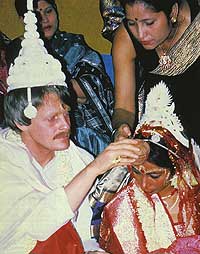 An International conference on ”Marriage in Globalizing Contexts: Exploring Change and Continuity in South Asia” will be held in New Delhi, India 25–27 September 2008. It is organised by Dr. Ravinder Kaur, Associate Professor, Department of Humanities and Social Sciences, Indian Institute of Technology, New Delhi, Prof. Rajni Pariwala, Head, Dept. of Sociology, University of Delhi, and Dr. Shalini Grover, Sir Ratan Tata Post Doctoral Fellow, Institute of Economic Growth (IEG), University of Delhi. Papers are invited on marriage and family research focusing on the countries of Afghanistan, Bangladesh, Bhutan, India, Maldives, Nepal, Pakistan and Sri Lanka. Individual contributions should combine conceptual thinking with ethnographic content (i.e. field-work, participant observation and interviews) and be based on the following themes: • Conceptual understandings of marriage; • Demographic Imbalances, Economic Shifts and Marriage Markets; • Shifting ideas of love, intimacy and marital practices; • Divorce and re-marriage; • Women’s paid work, labour force participation and marriage; or • Socio-legal advancements, feminist interventions and their impact on marriage/domestic life. The goal is to consolidate an edited volume that can lend differing perspectives to marriage in South Asia. More information.
An International conference on ”Marriage in Globalizing Contexts: Exploring Change and Continuity in South Asia” will be held in New Delhi, India 25–27 September 2008. It is organised by Dr. Ravinder Kaur, Associate Professor, Department of Humanities and Social Sciences, Indian Institute of Technology, New Delhi, Prof. Rajni Pariwala, Head, Dept. of Sociology, University of Delhi, and Dr. Shalini Grover, Sir Ratan Tata Post Doctoral Fellow, Institute of Economic Growth (IEG), University of Delhi. Papers are invited on marriage and family research focusing on the countries of Afghanistan, Bangladesh, Bhutan, India, Maldives, Nepal, Pakistan and Sri Lanka. Individual contributions should combine conceptual thinking with ethnographic content (i.e. field-work, participant observation and interviews) and be based on the following themes: • Conceptual understandings of marriage; • Demographic Imbalances, Economic Shifts and Marriage Markets; • Shifting ideas of love, intimacy and marital practices; • Divorce and re-marriage; • Women’s paid work, labour force participation and marriage; or • Socio-legal advancements, feminist interventions and their impact on marriage/domestic life. The goal is to consolidate an edited volume that can lend differing perspectives to marriage in South Asia. More information.
• Cultural Connections theme for the 2008 NYCAS conference
The 2008 New York Conference on Asian Studies (NYCAS) will be hosted by the Hamilton College in Utica, New York State. USA, 26–27 September 2008. The conference, one of the yearly so-called Council of Conferences (COC) organised by the American Association for Asian Studies (AAS), has the theme ”Cultural Connections, Convergences, and Collisions: Past and Present”. South Asia related sessions include one focusing on ”Madras to Montreal: Perspectives on Indian Identities”; and another one on ”Art and Architecture in the Subcontinent”. A roundtable session titled ”Perspectives on the Change of Regime in Pakistan 2008” will also be held. The keynote speaker will be Prof. Barbara Metcalfe, University of Michigan, who will speak about ”Telling the story of Islam in Asia: Reflections on Teleologies and Timelessness”. Scholars based not only in New York, but also in other states and countries are welcome. Graduate students are especially encouraged to submit proposals. More information about the 2008 NYCAS.
• Human Empowerment theme for the 9th IHDO conference
The International Human Development Organization (IHDO) invites to its 9th International conference with the theme, ”Human Empowerment – The Key to Economic Growth & Poverty Reduction”, to be held 29 September – 3 October 2008 in London, UK. The conference will address the issue of Youth & Women Empowerment, Poverty Reduction: from the individual to the global community. More than ever before, Individuals, Youth Associations, Religious Groups, Environmental NGOs, Community Associations and Nonprofit Organizations are being called to operate transparently, and adhere to the highest code of ethical conduct of living in service to others for human development. The conference will explore new ways to enhance empowerment to make youths & women of our society viable to face challenges that confronts underdeveloped & developing countries. Venue: Hilton London Hyde Park Hotel. More information.
• PhD Course on
International Environmental Engineering Sciences in Kathmandu
A PhD Course on
International Environmental Engineering Sciences for Eco-Cyclic Systems will be held in Kathmandu 16-24 October 2008. The theme for the course will be Solid Waste and Water Management, and will later be followed by another two PhD courses dealing with ”Air Pollution and Soil Remediation” (to be held in either Bangladesh, Thailand, Malaysia or India) and ”Chemical Analytical Studies – Sampling and Analyses in Practice” to be held in Sweden.
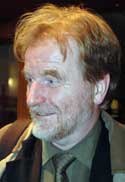 The Kathmandu course, equal to 8 ECTS, is organised by the Swedish Centre of Excellence for Support of Development of a Sustainable Society in Nepal, a collaboration initiative between Kathmandu University, Tribhuvan University, Asian Institute of Technology in Bangkok, Anna University in Chennai, and the Swedish so-called Laqua group (a consortium formed by researchers from the School of Pure & Applied Natural Sciences, Kalmar University; the School of Engineering, Kristianstad University; and the Dept. of Analytical Chemistry, Lund University). The Centre is funded by the Swedish International Development Cooperation Agence Sida. The objective behind the course is to increase the knowledge and the scientific level of the PhD students from Sweden and from Nepal concerning waste and water management problems in developing countries and to increase the research cooperation with South East Asia with the help of the knowledge of the Laqua Research Group, and researchers from the Sida ARPET program. Registration to the course should be made to Professor William Hogland (photo to the right) not later than Monday 15 September 2008. Full information about the course (as a pdf-file).
The Kathmandu course, equal to 8 ECTS, is organised by the Swedish Centre of Excellence for Support of Development of a Sustainable Society in Nepal, a collaboration initiative between Kathmandu University, Tribhuvan University, Asian Institute of Technology in Bangkok, Anna University in Chennai, and the Swedish so-called Laqua group (a consortium formed by researchers from the School of Pure & Applied Natural Sciences, Kalmar University; the School of Engineering, Kristianstad University; and the Dept. of Analytical Chemistry, Lund University). The Centre is funded by the Swedish International Development Cooperation Agence Sida. The objective behind the course is to increase the knowledge and the scientific level of the PhD students from Sweden and from Nepal concerning waste and water management problems in developing countries and to increase the research cooperation with South East Asia with the help of the knowledge of the Laqua Research Group, and researchers from the Sida ARPET program. Registration to the course should be made to Professor William Hogland (photo to the right) not later than Monday 15 September 2008. Full information about the course (as a pdf-file).
• WHO Commission on the Social Determinants of Health organises London conference
An international two-day global conference on 'Closing the Gap in a Generation; Health Equity through Action on the Social Determinants of Health' will be held in London 6–7 November 2008. The conference aim is to develop action from the recommendations made in the WHO Commission on the Social Determinants of Health (CSDH) report that was published in August 2008 (more information). The conference will be a landmark global event with participation from national and international politicians and policy makers, civil society organisations and leading academics. Invited keynote speakers include the WHO Director General, Dr Margaret Chan. Venue: Queen Elizabeth II Conference Centre, Westminister, London.
• Stockholm conference on peacebuilding in Afghanistan
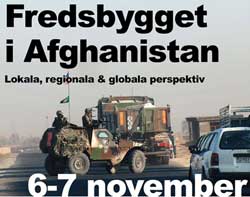 An International conference on ”Peacebuilding in Afghanistan: Local, regional and global perspectives” will be held in Stockholm 6–7 November 2008. The conference focuses on what the peacebuilding efforts look like in the country? What roles do the Afghan authorities, the International Community, the UN and the Nato-led ISAF forces play? Do they contribute to peace or armed conflict? Are there local initiatives at grassroots level promoting peace and how does the civilian population contribute to the reconstruction of the country? Why does Afghanistan receive so little funding for reconstruction compared to other areas of armed conflict? Have the complex developments in Afghanistan become something that the West would rather not have to deal with? What actions are needed in order for Afghanistan to become a country of peace and stability?
An International conference on ”Peacebuilding in Afghanistan: Local, regional and global perspectives” will be held in Stockholm 6–7 November 2008. The conference focuses on what the peacebuilding efforts look like in the country? What roles do the Afghan authorities, the International Community, the UN and the Nato-led ISAF forces play? Do they contribute to peace or armed conflict? Are there local initiatives at grassroots level promoting peace and how does the civilian population contribute to the reconstruction of the country? Why does Afghanistan receive so little funding for reconstruction compared to other areas of armed conflict? Have the complex developments in Afghanistan become something that the West would rather not have to deal with? What actions are needed in order for Afghanistan to become a country of peace and stability?
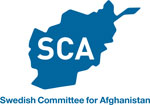 The conference is is organised by the Swedish Committee for Afghanistan (SCA), in cooperation with ENNA (European Network of NGOs in Afghanistan). Invited speakers include prominent persons such as Ashraf Ghani, Chairman of the Institute of State Effectiveness, and Chancellor of Kabul University; Sima Samar, Chairperson of the Afghan Independent Human Rights Commission; Kristian Berg Harpviken,
senior researcher, International Peace Research Institute (PRIO) in Oslo; Aziz Rafiee, Head of Afghanistan Civil Society Forum; and Kai Eide, UN Special Representative in Afghanistan, and head of the United Nations Assistance Mission in Afghanistan (UNAMA). The conference language will be English. Registration is necessary to participate. Send your registration to seminar@sak.se. Venue: Polstjärnan, Sveavägen 77, Stockholm.
The conference is is organised by the Swedish Committee for Afghanistan (SCA), in cooperation with ENNA (European Network of NGOs in Afghanistan). Invited speakers include prominent persons such as Ashraf Ghani, Chairman of the Institute of State Effectiveness, and Chancellor of Kabul University; Sima Samar, Chairperson of the Afghan Independent Human Rights Commission; Kristian Berg Harpviken,
senior researcher, International Peace Research Institute (PRIO) in Oslo; Aziz Rafiee, Head of Afghanistan Civil Society Forum; and Kai Eide, UN Special Representative in Afghanistan, and head of the United Nations Assistance Mission in Afghanistan (UNAMA). The conference language will be English. Registration is necessary to participate. Send your registration to seminar@sak.se. Venue: Polstjärnan, Sveavägen 77, Stockholm.
• NORASIA conference focuses on Asian Creativity
in Culture and Technology
 The Norwegian Network for Asian Studies invites for its 5th biannual NORASIA conference, to be held in Trondheim 12–16 November 2008. The theme for the conference will be “Asian Creativity
in Culture and Technology”, and it will be open to Nordic and international scholars and
PhD students as well as other specialists with an interest in and
knowledge about Asian Creativity.
Furthermore, and in line with the traditions of the Norwegian
Asia Network and the NIAS SUPRA programme, Master students
are also invited to participate and submit academically qualified
papers, even outside the proposed themes of the conference. Associate Professor Smriti Srinivas from the Dept. of Anthropology, University of California,
Davis, USA, will be one of the keynote speakers. The suggested topic for her speech is ”Landscapes of Urban Memory: The Sacred and the Civic in
Bangalore, India’s High Tech City”. Another keynote speaker is Martin Kenney, who will speak on 'Where Is Creative Entrepreneurship Happening in China and India: Evidence from Venture Capital Investment Patterns'. The event is organised in collaboration with the Nordic Institute of Asian Studies (NIAS), the Nordic NIAS Council (NNC), and the Norwegian University of Science and Technology (NTNU) in Trondheim (hosting the conference). More information.
The Norwegian Network for Asian Studies invites for its 5th biannual NORASIA conference, to be held in Trondheim 12–16 November 2008. The theme for the conference will be “Asian Creativity
in Culture and Technology”, and it will be open to Nordic and international scholars and
PhD students as well as other specialists with an interest in and
knowledge about Asian Creativity.
Furthermore, and in line with the traditions of the Norwegian
Asia Network and the NIAS SUPRA programme, Master students
are also invited to participate and submit academically qualified
papers, even outside the proposed themes of the conference. Associate Professor Smriti Srinivas from the Dept. of Anthropology, University of California,
Davis, USA, will be one of the keynote speakers. The suggested topic for her speech is ”Landscapes of Urban Memory: The Sacred and the Civic in
Bangalore, India’s High Tech City”. Another keynote speaker is Martin Kenney, who will speak on 'Where Is Creative Entrepreneurship Happening in China and India: Evidence from Venture Capital Investment Patterns'. The event is organised in collaboration with the Nordic Institute of Asian Studies (NIAS), the Nordic NIAS Council (NNC), and the Norwegian University of Science and Technology (NTNU) in Trondheim (hosting the conference). More information.
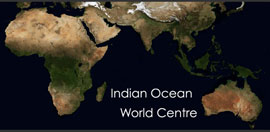 • Montreal conference on Debt and Slavery
• Montreal conference on Debt and Slavery
An interdisciplinary conference on ”Debt and Slavery: the History of a Process of Enslavement” will be held at the Indian Ocean World Centre, McGill University, Montreal, Canada, 7–9 May 2009. The conference will cover all geographical areas and time periods. Papers should be in English or French. A wide range of relevant subjects will be given consideration but prospective participants are asked to give special consideration to the following themes: • indebtedness and enslavement; •
structures of enslavement for debt; •
legal and religious prescriptions governing servitude for debt; •
debt bondage; •
pawnship; •
the sex and age profile of debt slaves; •
gender and debt slaver; •
credit and debt within slavery; •
debt repayment in slavery; •
agency for debt-slaves; •
manumission and liberty for debt slaves.
The conference will follow the Avignon model – papers will be grouped according to theme, and a summary presented by a discussant during sessions devoted to each theme. Individual authors will NOT present papers; rather, all papers will be posted on the IOWC website after 1 February 2009. Each session will involve a presentation by the discussant, followed by general discussion. Therefore, it is essential that all conference-goers be familiar with all of the papers under consideration. In the interests of fostering debate, the number of conference participants will be limited. The participants must submit only original unpublished material, and grant conference convenors exclusive publication rights to their paper for a period of one year following the conference. Deadline for submission of abstracts is 1 October 2008.
• Other conferences connected to South Asian
studies arranged all over the World
See SASNET’s page, http://www.sasnet.lu.se/conferences.html#conf
Important lectures and seminars in Scandinavia
• Uppsala lecture on Literature and Globalisation
Prof. Margareta Petersson, Dept. of Comparative Literature, Växjö University will lecture on ”Litteratur och globalisering. Ett sätt att tolka skönlitteratur” (Literature and Globalisation. One way of interpreting Fiction) at Uppsala University, on Tuesday 16 September 2008, 10–12.
She will talk about the relation between theory and practice, based on her book ”Globaliseringens ansikten: Den indo-engelska romanen”, published in 2008.
The book deals with Indian authors writing in English, a tradition since 150 years, the problems regarding authentic or hybrid status of cultures, and the importance of one’s own cultural concepts for the way you interpret lierary works. The book focuses on texts by Raja Rao, Anita Desai, Salman Rushdie, M.G. Vassanji, Amitav Ghosh and Arundhati Roy. The seminar is organised by the South Asia Seminar at Uppsala University. Venue: Engelska Parken, room 16-0043, Uppsala.
• RWI hosts Lund University’s Development Studies Day
2008
Lund University’s Development Studies Day
2008 will be held on Tuesday 16 September, 09.15–17.00. This year, it is jointly hosted by the Faculty of Law and the Raoul Wallenberg Institute (RWI). The theme for the 2008 Development Studies say will be ”A human rights based approach to development”, reflecting that this is an important aspect of the research that is carried out within RWI and to a certain extent the Faculty of Law. The morning will be devoted to students presentations, and in the afternoon three parallel workshop sessions focusing on human rights based approach to development will be held. Venue: RWI,
Old Printing House (Gamla Tryckeriet),
Lilla Gråbrödersgatan 4, Lund. Morning lectures will take place in
the Pufendorf Hall (Pufendorfsalen), and the afternoon parallel sessions will take place in the
Alfa Laval, Tetra Pak, and Alfa Laval Agri halls. See the programme (as a pdf-file)
• Vazira Fazila-Yacoobali Zamindar lectures in Oslo
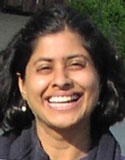 Vazira Fazila-Yacoobali Zamindar, Assistant Professor of History at Brown University, Providence, Rhode Island, USA, will give a lecture titled 'Facts on the Ground: Rethinking the Religious Boundaries of Modern
South Asia' in Oslo on Wednesday 17 September 2008, 14.15–15.15. Dr. Zamindar is interested in recovering cross-border social histories on the margins of a divided South Asia. While her first book, The Long Partition and the Making of Modern South Asia: Refugees, Boundaries, Histories, focused on north Indian Muslim families as they became divided by the Indo-Pak border in the aftermath of the Partition of 1947, her present research examines the colonial history of archaeology as it affected the making of religiously, and later nationally, distinct 'heritage' in modern South Asia. The Oslo lecture is a trial lecture for a position as research assistant in Urdu at the University of Oslo. Veenue: Seminarrom 8 Sophus Bugge, Blindern, Oslo. More information about Dr. Zamindar.
Vazira Fazila-Yacoobali Zamindar, Assistant Professor of History at Brown University, Providence, Rhode Island, USA, will give a lecture titled 'Facts on the Ground: Rethinking the Religious Boundaries of Modern
South Asia' in Oslo on Wednesday 17 September 2008, 14.15–15.15. Dr. Zamindar is interested in recovering cross-border social histories on the margins of a divided South Asia. While her first book, The Long Partition and the Making of Modern South Asia: Refugees, Boundaries, Histories, focused on north Indian Muslim families as they became divided by the Indo-Pak border in the aftermath of the Partition of 1947, her present research examines the colonial history of archaeology as it affected the making of religiously, and later nationally, distinct 'heritage' in modern South Asia. The Oslo lecture is a trial lecture for a position as research assistant in Urdu at the University of Oslo. Veenue: Seminarrom 8 Sophus Bugge, Blindern, Oslo. More information about Dr. Zamindar.
• Stockholm seminar on Escalating Conflict in Sri Lanka
 A seminar on ”Escalating Conflict in Sri Lanka. What is the Role of Sweden and the International Community?” will be held in Stockholm on Thursday 18 September 2008, 18.00–20.00. The seminar, organised by the Swedish Development Forum (Föreningen för Utvecklingsfrågor), focuses on the present situation, in which Sri Lanka has moved from a ceasefire and peace process to an escalating war, and about which role the international community can play. The main speaker is Jehan Perera from the National Peace Council, one of Sri Lanka’s most prominent peace activists and political commentators. He will give his analysis of the current situation in Sri Lanka, and of the possibilities for the civil society and the international community to work for peace and human rights. Urban Sjöström, Sida's Division for Democratic Governance, previously stationed in Sri Lanka, will give his view on Sweden’s role in Sri Lanka. Camilla Orjuela from the School of Global Studies, Göteborg University will be the facilitator of the discussion. A similar seminar was organised at the School of Global Studies in Göteborg on Monday 15 September. Venue: Klarasalen, Klara Konferens, Vattugatan 6, Stockholm. More information.
A seminar on ”Escalating Conflict in Sri Lanka. What is the Role of Sweden and the International Community?” will be held in Stockholm on Thursday 18 September 2008, 18.00–20.00. The seminar, organised by the Swedish Development Forum (Föreningen för Utvecklingsfrågor), focuses on the present situation, in which Sri Lanka has moved from a ceasefire and peace process to an escalating war, and about which role the international community can play. The main speaker is Jehan Perera from the National Peace Council, one of Sri Lanka’s most prominent peace activists and political commentators. He will give his analysis of the current situation in Sri Lanka, and of the possibilities for the civil society and the international community to work for peace and human rights. Urban Sjöström, Sida's Division for Democratic Governance, previously stationed in Sri Lanka, will give his view on Sweden’s role in Sri Lanka. Camilla Orjuela from the School of Global Studies, Göteborg University will be the facilitator of the discussion. A similar seminar was organised at the School of Global Studies in Göteborg on Monday 15 September. Venue: Klarasalen, Klara Konferens, Vattugatan 6, Stockholm. More information.
• Nandita Singh lectures in Lund
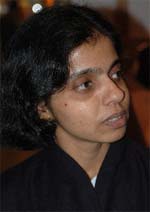 Lund University’s 2008 Day of the Social Sciences (Samhällsvetenskapens dag) is held on Friday 19 September 2008, 9.00–12.30. The theme for the day is ”Konflikter kring vatten – kampen om vår viktigaste resurs” (Water Conflicts – the struggle for our most important natural resource). Venue: Edens hörsal, Paradisgatan 5, House H
, Lund. Dr. Nandita Singh (photo to the left), Dept. of Land and Water Resources
Engineering, Royal Institute of Technology (KTH), Stockholm will participate in one seminar. She is currently involved in a research
project on the issue of realization of right to water forms in India along with Dr. Karsten Åström, Division of Sociology of Law, Lund University. They will give a presentation titled ”The human right to water in India: Problems & prospects”. Read the full programme for the day.
Lund University’s 2008 Day of the Social Sciences (Samhällsvetenskapens dag) is held on Friday 19 September 2008, 9.00–12.30. The theme for the day is ”Konflikter kring vatten – kampen om vår viktigaste resurs” (Water Conflicts – the struggle for our most important natural resource). Venue: Edens hörsal, Paradisgatan 5, House H
, Lund. Dr. Nandita Singh (photo to the left), Dept. of Land and Water Resources
Engineering, Royal Institute of Technology (KTH), Stockholm will participate in one seminar. She is currently involved in a research
project on the issue of realization of right to water forms in India along with Dr. Karsten Åström, Division of Sociology of Law, Lund University. They will give a presentation titled ”The human right to water in India: Problems & prospects”. Read the full programme for the day.
• Parul Sharma lectures on Globalised South Asia in Uppsala
Parul Sharma, CSR Advisor,
Group Assurance,
Sandvik AB, will hold a lecture on ”A Globalised South Asia and Human Rights” at Uppsala University on Friday 19 September 2008, at 14.15. The lecture is organised by the Dept. of English. Ms. Sharma will talk about how a current increased interest in the role of business operations in society has been promoted by heightened business debates about human rights conditions in the South Asian region. Consumers have become sensitive to the CSR (Corporate Social Responsibility) performance of the companies from which they buy their goods and services. These trends have contributed to the pressure on companies to operate in an economically, socially and environmentally sustainable way. Issues like environmental damage, improper treatment of workers, and faulty production leading to customers' inconvenience or danger, are highlighted in the media. Some investors and investment fund managers have begun to take account of a corporation's CSR policy in making investment decisions. Ms. Sharma is to some extent connected to the Dept. of Law, Stockholm University. Venue: room 16-1059, Engelska Parken, Uppsala University.
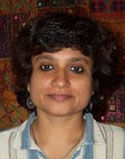 • Public hearing
on Dalits and Caste Discrimination in Copenhagen
• Public hearing
on Dalits and Caste Discrimination in Copenhagen
The Foreign Affairs Committee of the Danish Parliament (Folketinget) organises a public hearing
on Dalits and Caste Discrimination, on Wednesday 24 September 2008, 9.00–12.00. Several invited speakers will present the situation for Dalits in India and Nepal. Among them, Prof. Ashwini Deshpande (photo to the right) from the Dept. of Economics, Delhi School of Economics, University of Delhi, who will talk about ”Corporate sector responsibility – The fight against Caste Discrimination in the labour market”. Mr. Henri Tiphagne, Director of People’s Watch, India will talk about ”The situation of the Dalits in India viewed in a broad human rights perspective, focus on legislation, exemption from prosecution and political will”; Ms. Durga Sob, President of the Feminist Dalit Organisation, Nepal will talk about ”The situation of the Dalits in Nepal – prospects in a new political reality”; and Prof. Chin-Sung Chung, Vice-Chair of the UN Human Rights Council Advisory Committee will talk about ”Current status and perspectives for UN´s involvement in the issue of Caste Discrimination - UN Principles and Guidelines for Elimination of Discrimination based on Work and Descent”. Venue: Landstingssalen, Parliament of Denmark, Christiansborg Palace, Copenhagen. Please note the limited seats available. The hearing is public, but those who wish to attend it should register to the committee’s secretariat not later than Friday 19 September. See the full programme (as a pdf-file).
• Copenhagen seminar on Post-Tsunami Impact on Women in Tranquebar
The Centre for Comparative Cultural Studies at the Institute of Cross-Cultural and Regional Studies, University of Copenhagen and the Tranquebar Initiative, Ethnographical Collections, National Museum of Denmark, invite to a guest lecture with PhD. fellow Esther Samraj, Mother Teresa Women’s University, Kodaikanal, Tamilnadu, India on Wednesday 1 October 2008, 16.15–17.00. The seminar is titled ”The Post-Tsunami Impact on Women in Tranquebar, India”. In her presentation, Esther Samraj will focus on the fact that media has, at least until recently looked into almost every conceivable angle of the effects of the tsunami that on 26 December 2004 hit the east coast of India: the impact on tourism, the impact on the environment, revealed villages underwater and even the impact on animals. One area that has so far received less attention is the gender impact of the tsunami and its impact on women in particular. As a result, we are a long way from understanding the social impact of the disaster. This briefing seeks to promote debate and awareness of the issues and reflections on the extent to which the recovery phase of the relief effort integrates the problems raised. Venue: Institute of Cross-Cultural Studies, Snorresgade 17-19, room U5.
• Uppsala presentation of Gunnel Cederlöf’s book
Dr. Gunnel Cederlöf, Dept. of History, Uppsala University, will present her recently published book ”Landscapes and the Law” in a seminar at Uppsala University on Thursday 2 October 2008, 13.15–15.00. She will lecture about ”Landscapes and the Law: the social process of making law", examining the role of law in consolidating early colonial rule in South India from the perspective of people’s access to nature in forests and hill tracts. The seminar is organised in collaboration with Uppsala University’s Historical Seminar. Venue: Dept. of History, Engelska Parken, room 1-1060, Uppsala.
• Copenhagen lecture on life as a pastor in Tranquebar, South India
PhD fellow Christian Samraj, Leipzig University, Germany will hold a guest lecture in Copenhagen on ”Tranquebar – then and now. A personal reflection as pastor in Tranquebar, South India” on Friday 3 October 2008, 13.15–15.00. It is jointly organised by the Centre for Comparative Cultural Studies at the Institute of Cross-Cultural and Regional Studies, University of Copenhagen and the Tranquebar Initiative, Ethnographical Collections, National Museum of Denmark. The very name Tranquebar reminds one of religion, language, education, printing, and social activities. The past history of Tranquebar and Tranquebar today will be dealt with from an individual pastoral perspective. The elegant fort Dansborg on the shores of Bay of Bengal and the old relics speak much more than many official records of the Danish-Indian cultural heritage of the place. 10 years in Tranquebar as pastor of the New Jerusalem Church and later as Director of the Ziegenbalg Spiritual Centre in Tranquebar has changed Christian Samraj’s whole attitude towards life. Venue: Institute of Cross-Cultural and Regional Studies, University of Copenhagen, Artellerivej 86, room 1.34.
Business and Politics
• The European Business and Technology Centre (EBTC) starts to operate in India from 1 October
 A European Business and Technology Centre (EBTC) is starting to operate in India from 1 October 2008. The financing contract was signed on 11 September between H.E. Daniele Smadja, Ambassador and Head of the Delegation of the European Commission to India and Mr Arnaldo Abruzzini, Secretary General of the European Chambers of Commerce and Industry (Eurochambres). The creation of the Centre has been endorsed by EU–India leaders in 2007 during their yearly Summit in New Delhi. A consortium led by Eurochambres, and with one Swedish member institution – the Swedish Environmental Institute (IVL), has been selected to operate the EBTC; its operations will be entirely demand driven. The initial budget of the Centre is over 8 million euro, 80% of which is coming from the EU budget (i.e. Euro 6.6 million ). Another Euro 5 million is expected from the EU budget in the months to come. ”The ambition of Eurochambres' consortium – says Secretary General Mr. Abruzzini – is to develop a Centre that will become THE reference point for promoting European clean technologies in India, and will be recognised for the quality of its services, its knowledge of the Indian market and its capacity to reach out to the entire European business and research community”.
A European Business and Technology Centre (EBTC) is starting to operate in India from 1 October 2008. The financing contract was signed on 11 September between H.E. Daniele Smadja, Ambassador and Head of the Delegation of the European Commission to India and Mr Arnaldo Abruzzini, Secretary General of the European Chambers of Commerce and Industry (Eurochambres). The creation of the Centre has been endorsed by EU–India leaders in 2007 during their yearly Summit in New Delhi. A consortium led by Eurochambres, and with one Swedish member institution – the Swedish Environmental Institute (IVL), has been selected to operate the EBTC; its operations will be entirely demand driven. The initial budget of the Centre is over 8 million euro, 80% of which is coming from the EU budget (i.e. Euro 6.6 million ). Another Euro 5 million is expected from the EU budget in the months to come. ”The ambition of Eurochambres' consortium – says Secretary General Mr. Abruzzini – is to develop a Centre that will become THE reference point for promoting European clean technologies in India, and will be recognised for the quality of its services, its knowledge of the Indian market and its capacity to reach out to the entire European business and research community”.
The EBTC will primarily focus on sectors such as Environment (including Clean Development Mechanism, Chemicals Management, Water Management and Waste Management); Transport; Energy (renewable energy, energy efficiency, clean coal, and carbon capture and storage technologies) and Biotechnology - all sectors being intrinsically related to Climate Change (including mitigation and adaptation technologies). In addition all sectors where the EU business operators experience market access constraints will be included. It is to be located both in New Delhi, Mumbai and Bangalore. More information about the establishement of EBTC.
• Information about South Asia related business and politics in Sweden
See SASNET's page, http://www.sasnet.lu.se/polbuss.html
South Asia related culture in Scandinavia
• Indian writers present at the 2008 Göteborg Book Fair
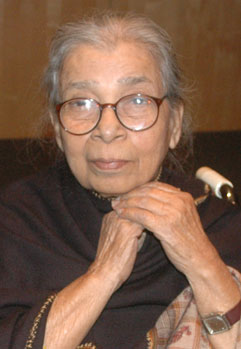 In
September 2008 the so-called Indian Library in Sweden (Indienbiblioteket)
again publishes a number of books, and introduces the writers at
the Göteborg
Book Fair (Bok- och Biblioteksmässan), held 25–28
September. Indienbiblioteket, an
outcome of the Indo-Swedish translation project funded by Sida,
has been responsible for a number of new publications almost every
year since it was formally launched in 2001. The most well-known writers participating in the 2008 book fair are the legendary Mahasweta Devi (photo) from West Bengal, Anita Nair from Kerala, and the poet Ambai from Tamil Nadu. Other invited Indian writers are Teji Grover, Sandhya Rao and Jeeva Raghunath. Several seminars will be held with these mostly non-English writing authors and poets. More information as a pdf file (in Swedish only)
In
September 2008 the so-called Indian Library in Sweden (Indienbiblioteket)
again publishes a number of books, and introduces the writers at
the Göteborg
Book Fair (Bok- och Biblioteksmässan), held 25–28
September. Indienbiblioteket, an
outcome of the Indo-Swedish translation project funded by Sida,
has been responsible for a number of new publications almost every
year since it was formally launched in 2001. The most well-known writers participating in the 2008 book fair are the legendary Mahasweta Devi (photo) from West Bengal, Anita Nair from Kerala, and the poet Ambai from Tamil Nadu. Other invited Indian writers are Teji Grover, Sandhya Rao and Jeeva Raghunath. Several seminars will be held with these mostly non-English writing authors and poets. More information as a pdf file (in Swedish only)
Dr. Sumit Roy, Visiting Senior Research Fellow at the School of International Relations and Strategic Studies, Jadavpur University, Kolkata, India, will also participate in the 2008 Göteborg Book Fair. He will take part in a seminar on ”New Colonial powers advancing”, focusing on the strong role that China and India now play in Africa. The seminar, also including prominent Chinese researchers, is organised by the The Nordic Africa Institute in Uppsala.
More information about the Göteborg Book Fair 2008.
• Rabindrasangheet concert in Lund
The Indo-Swedish Rabindrasangheet singer Bubu Munshi Eklund will perform with a programme of Rabindranath Tagore’s songs in Lund on Saturday 20 September 2008, at 21.00. The concert is organised by Theatre Sagohuset, and is part of the Cultural night held in Lund that day. Bubu plays the harmonium, but will also be accompanied by her son Mattias Eklund, playing bass clarinet. More information about Bubu Munshi Eklund.
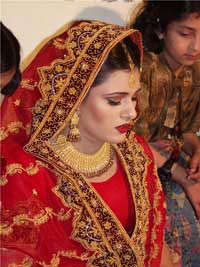 • Oslo exhibition on Pakistani Weddings
• Oslo exhibition on Pakistani Weddings
An exhibition on Pakistani Weddings is shown at the Norwegian Museum of Cultural History in Bygdøy, Oslo, from June till 30 December 2008. It is part of the museum’s ongoing Year of Cultural Diversity celebration, and has been made in cooperation with the National Institute of Folk & Traditional Heritage (Lok Virsa) in Islamabad. Pakistani wedding costumes from different regions in Pakistan are exhibited. They have a particular position among the formal clothes, and are created in tension between local traditions, cultural creativity and external influences. Regional specificity is apparent, while influence from a shared history and cultural heritage is visible as well. The exhibition also introduces the various ceremonies and rituals of wedding, through photos, film and selected artifacts.
• More information about South Asia related culture
in Sweden and Scandinavia
See SASNET’s page, http://www.sasnet.lu.se/culture.html
New and updated items on SASNET web site
• Swedish departments where research on
South Asia is going on:
Constantly added to the list of research environments at Swedish
universities, presented by SASNET. The full list now includes 231 departments,
with detailed descriptions of the South Asia related research and education
taking place! Go to http://www.sasnet.lu.se/environment.html
ƒ Dept. of Forest Mycology and Pathology, Swedish University of Agricultural Sciences (SLU), Uppsala
• Useful travelling information
Look at http://www.sasnet.lu.se/travelling.html.
Updated travel advises from the The British Foreign & Commonwealth
Office about safety aspects on travelling to the countries of
South Asia.
Best regards,
Sidsel Hansson Lars Eklund
SASNET/Swedish South Asian Studies Network
SASNET is a national network
for research, education, and information about South Asia, based at Lund
University. The aim is to encourage and promote an open and dynamic networking
process, in which Swedish researchers co-operate with researchers in South
Asia and globally.
The network is open to all sciences. Priority is given to co-operation
between disciplines and across faculties, as well as institutions in the
Nordic countries and in South Asia. The basic idea is that South Asian
studies will be most fruitfully pursued in co-operation between researchers,
working in different institutions with a solid base in their mother disciplines.
The network is financed by Sida (Swedish
International Development Cooperation Agency) and by Lund
University.
Postal address: SASNET – Swedish South Asian Studies Network,
Scheelevägen 15 D, SE-223 70 Lund, Sweden
Visiting address: Ideon Research Park, House Alpha 1 (first floor,
room no. 2040), in the premises of the Centre for East and South
East Asian Studies at Lund University (ACE).
Phone: + 46 46 222 73 40
Fax: + 46 46 222 30 41
E-mail: sasnet@sasnet.lu.se
Web site:
http://www.sasnet.lu.se
SASNET - Swedish South Asian Studies Network/Lund
University
Address: Scheelevägen 15 D, SE-223 70 Lund, Sweden
Phone: +46 46 222 73 40
Webmaster: Lars Eklund
Last updated
2010-11-18



